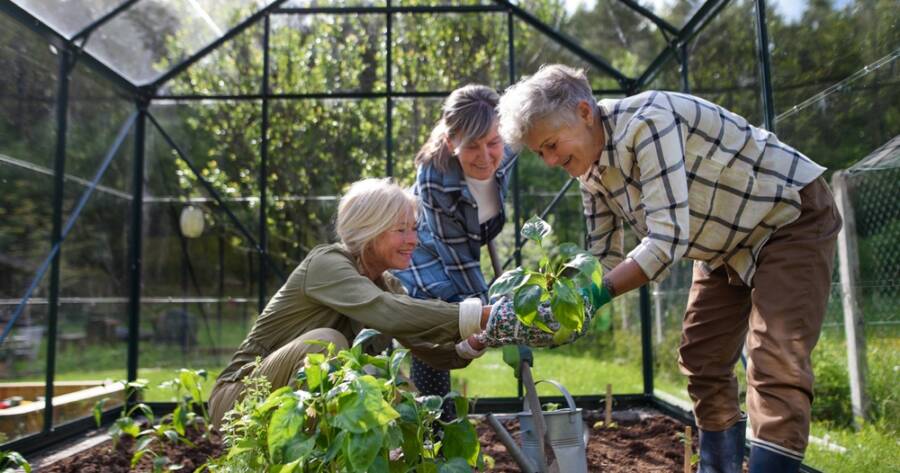Retirement opens the door to something many people long for, free time. For seniors, this chapter of life offers a perfect opportunity to explore hobbies that bring joy, enhance health, and foster social connections. Engaging in regular hobbies doesn’t just fill time, it supports mental sharpness, emotional well-being, and even physical fitness. Whether you’re looking to learn something new, stay physically active, or tap into your creative side, there’s a hobby out there to match your interests and lifestyle.
1. Gardening: Grow Health and Happiness
Gardening is more than just a way to beautify your space, it’s a therapeutic activity that encourages movement, fresh air, and a connection to nature. Whether tending to flowers, herbs, or vegetables, gardening can improve mood, reduce stress, and provide a sense of accomplishment.
For those with limited mobility, raised garden beds or container gardens are excellent alternatives that make gardening accessible and enjoyable.
2. Walking and Nature Hikes: Movement at Your Own Pace
Walking is a simple, low-impact exercise that provides immense physical and mental benefits. Daily walks can improve heart health, support joint function, and enhance mood. For those who enjoy the outdoors, nature hikes add the bonus of scenic beauty and wildlife encounters.
Joining a local walking group or hiking club can also make the activity more social and motivating.
3. Art and Crafts: Tap Into Your Creativity
Painting, drawing, knitting, crocheting, scrapbooking, and other crafts are fantastic ways to express creativity while keeping the mind engaged and the hands busy. These hobbies can reduce anxiety, improve fine motor skills, and provide a wonderful outlet for self-expression.
Art classes at community centers or online tutorials can help beginners get started or offer inspiration to experienced hobbyists.
4. Volunteering: Give Back and Stay Connected
Many seniors find great purpose in giving back to their communities. Volunteering not only fills time meaningfully but also strengthens social ties and mental health. Opportunities range from mentoring students and working at local food banks to helping at hospitals or animal shelters.
Choose a cause close to your heart, and you’ll find the work both rewarding and energizing.
5. Reading and Book Clubs: Expand Your Mind
Reading stimulates the brain, improves memory, and reduces stress. Whether you enjoy novels, history, biographies, or poetry, getting lost in a good book is a timeless pleasure. Joining a book club, either in person or online, can enhance the experience with lively discussions and new friendships.
Libraries and senior centers often host regular reading groups and offer free access to a wide range of materials.
6. Cooking and Baking: Delicious and Creative
Cooking can be a fun and practical hobby, especially when trying new recipes or exploring global cuisines. Baking adds an element of precision and creativity, and both can be shared with loved ones. Cooking classes, whether in a community kitchen or online, provide great opportunities to learn new skills.
Preparing meals can also become a social event, especially when done with friends or family.
7. Music and Dance: Joy Through Rhythm and Movement
Learning to play an instrument, singing in a choir, or dancing to your favorite tunes are all hobbies that can uplift your spirit and boost cognitive function. Music has therapeutic benefits, while dancing offers gentle exercise that improves balance and coordination.
Senior centers often host music nights, dance classes, and other rhythm-focused activities perfect for all skill levels.
It’s Never Too Late to Start Something New
Hobbies enrich our lives at any age but especially in the senior years when time and freedom are more abundant. Whether you’re rediscovering an old passion or trying something completely new, hobbies provide purpose, joy, and wellness.
Explore what excites you, connect with others who share your interests, and remember every day is a chance to create, move, learn, and grow.

